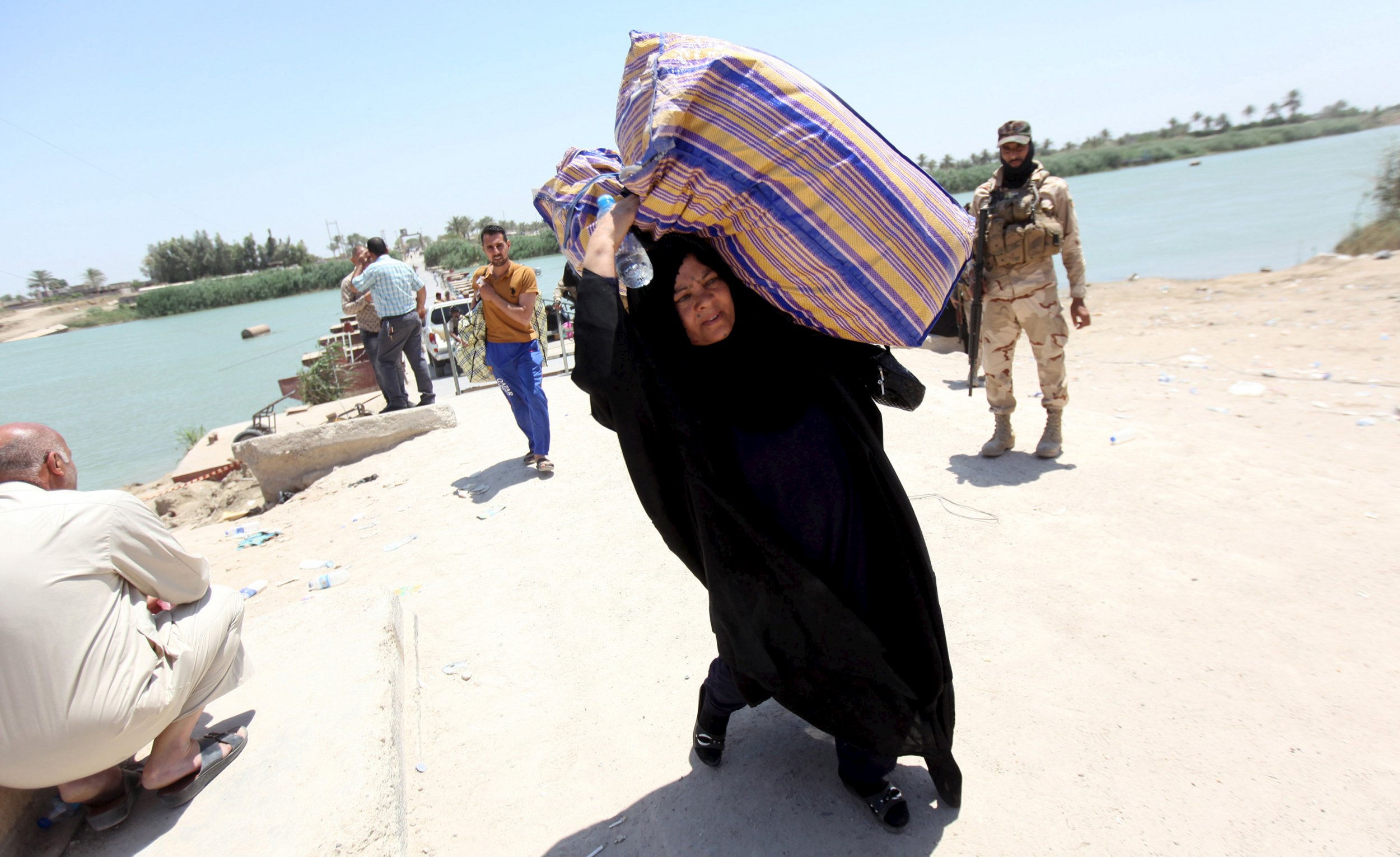
The seizure of the city of Ramadi by the Islamic State, or ISIS, on Sunday was a major setback for the Iraqi government and for the Obama administration.
Although U.S. officials downplayed the significance of the defeat, saying that Ramadi was not "strategic" in a military sense, the city is a very important political symbol because it is the capital of Anbar province, the predominantly Sunni western province that has been a stronghold for ISIS and its predecessor organization, Al-Qaeda in Iraq.
The panicked retreat of Iraqi police and security forces from Ramadi underscores the continued weakness of the Iraqi army and police. It also raises questions about the viability of the Obama administration's strategy to defeat ISIS.
The fact that the Baghdad government now is considering moving Shiite militias to Ramadi, a predominantly Sunni city, suggests that Iraq's central government still lacks adequate support from Iraq's Sunni Arabs to defeat ISIS, a Sunni revolutionary movement. This spells trouble for Iraqi and American plans to defeat the terrorist group.
Those plans included the building of an inclusive ruling coalition in Baghdad that would unite Iraq's Shiite majority with the Kurdish and Sunni Arab minorities, who would contribute militia fighters to aid the Shiite-dominated Iraqi army.
Earlier this month, the first 1,000 Sunni recruits joined a pro-government Sunni tribal militia that is slated to grow to 6,000. But the arming of Sunni militias in Anbar province has been delayed by the opposition of Shiite political leaders who doubt the loyalty of many Sunni Iraqis in an increasingly polarized sectarian atmosphere.
The fall of Ramadi also has weakened Iraqi Prime Minister Haider al-Abadi, who became Iraq's top leader last year with strong backing from the United States.
Abadi, a Shiite political leader who promised to lead a more inclusive government, reached a deal on sharing oil revenues with Iraqi Kurds and pushed for arming Sunni tribesmen to fight against ISIS. But Abadi's plans to arm Sunni militias have been trimmed back by rival Shiite leaders backed by Iran, who favor the ruthless employment of Iranian-trained Shiite militias.
Now Iran's preferred militias are building up in preparation to retake Ramadi. Their presence is likely to further exacerbate sectarian tensions that ISIS has exploited to gain support from Iraqi Sunnis fearful of Shiite domination.
A military victory for Iran's surrogate militias in Ramadi would amount to a political defeat for the United States and for Abadi. And such a victory could trigger a Sunni backlash that could boost ISIS and prolong, rather than shorten, Iraq's civil war.
James Phillips is the senior research fellow for Middle Eastern affairs at the Douglas and Sarah Allison Center for Foreign Policy Studies at the Heritage Foundation. This article first appeared on The Daily Signal.
Uncommon Knowledge
Newsweek is committed to challenging conventional wisdom and finding connections in the search for common ground.
Newsweek is committed to challenging conventional wisdom and finding connections in the search for common ground.
About the writer
To read how Newsweek uses AI as a newsroom tool, Click here.








